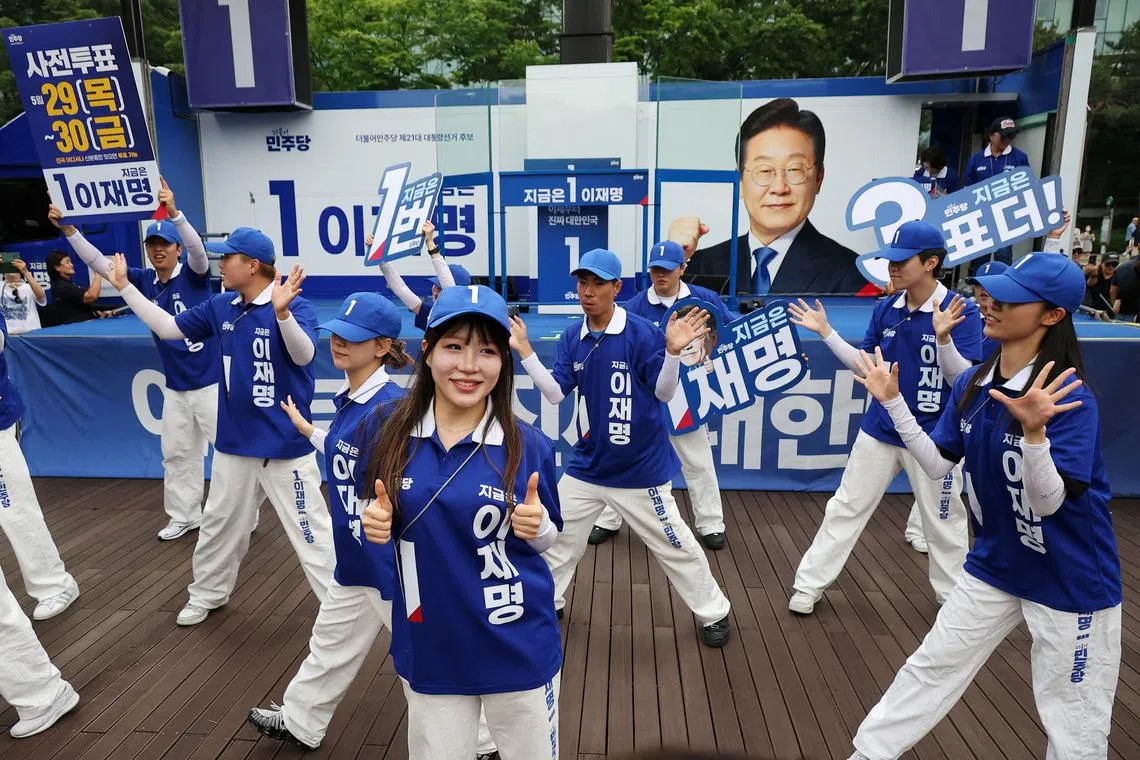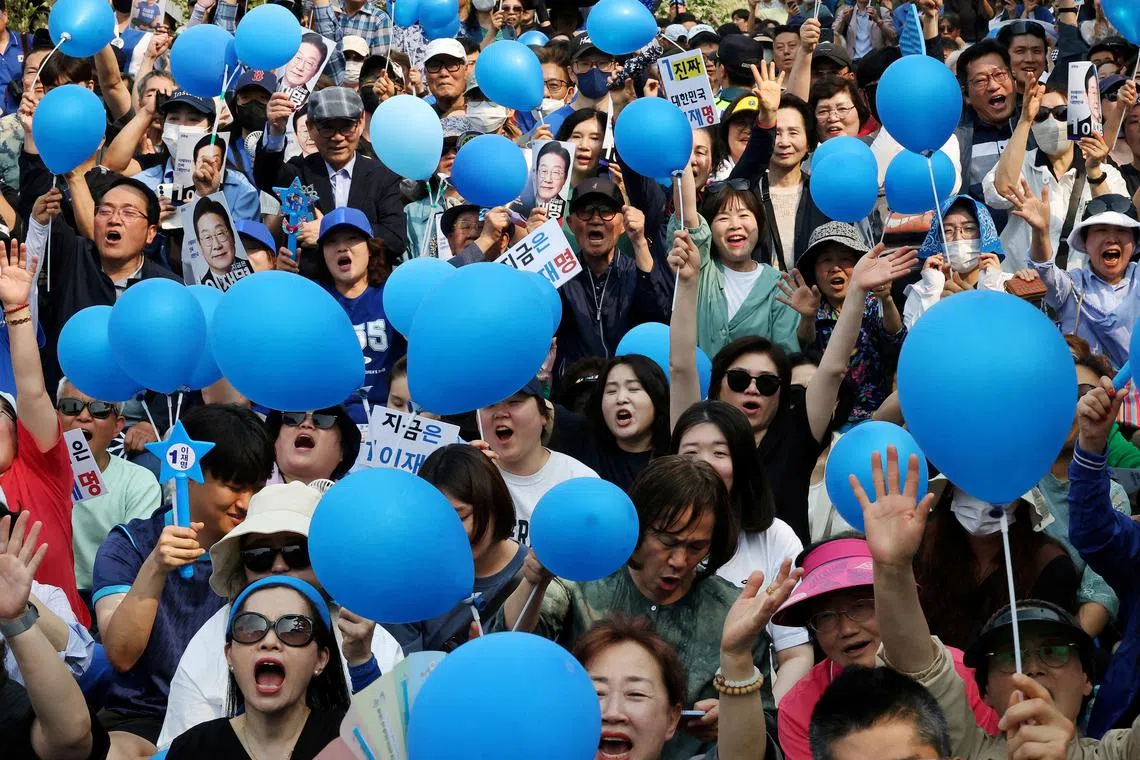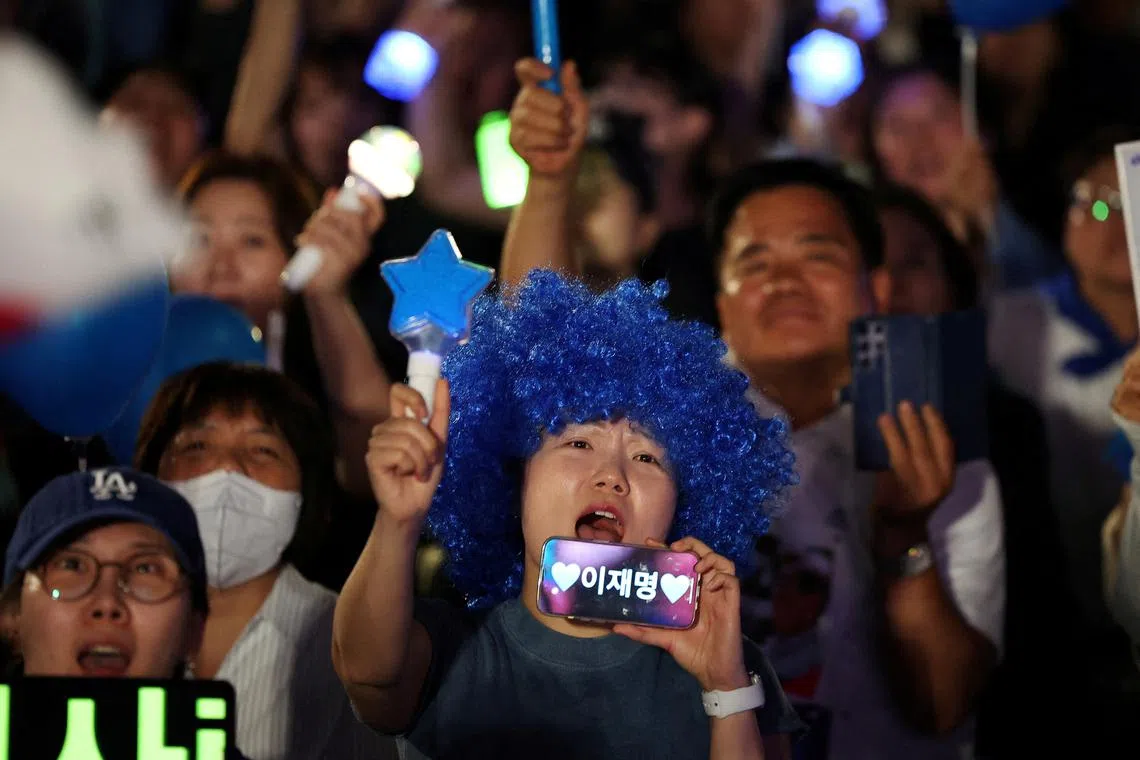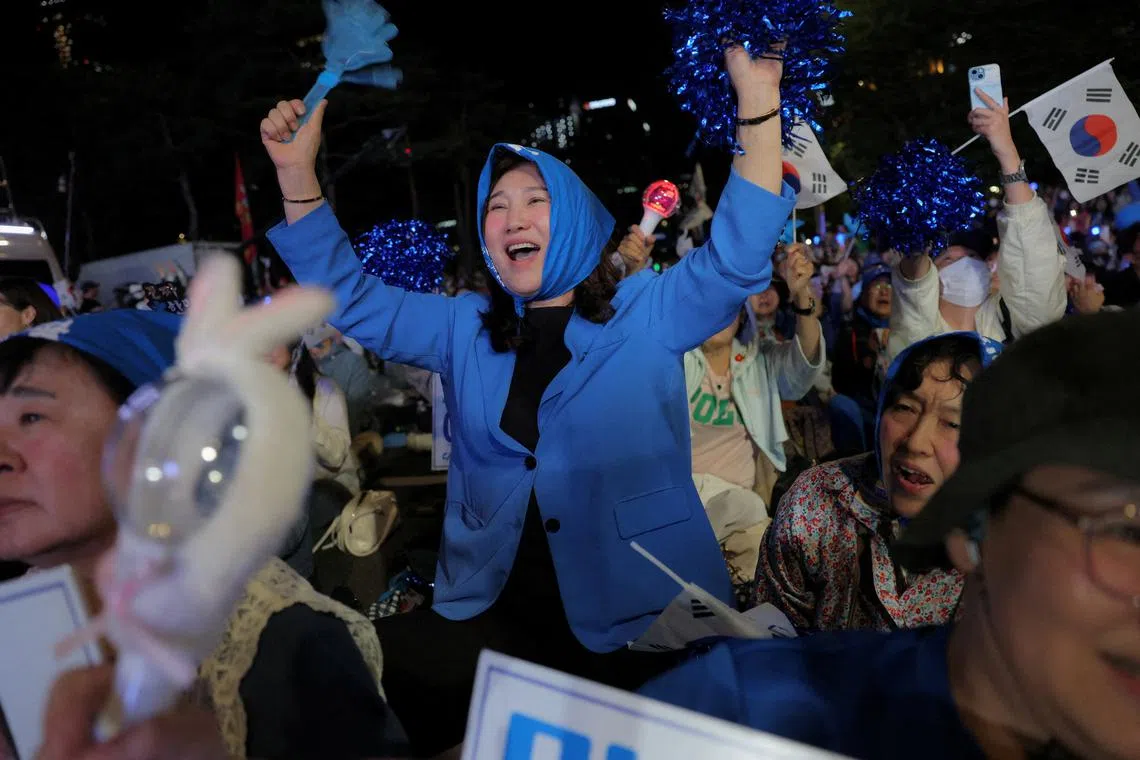Young South Korean women help propel liberal candidate Lee to victory
Sign up now: Get insights on Asia's fast-moving developments

Around 58 per cent of women voters in their 20s and 57 per cent in their 30s voted for Mr Lee of the Democratic Party.
PHOTO: REUTERS
SEOUL - Young women in South Korea voted in droves to help new liberal President Lee Jae-myung win the June 3 election
Around 58 per cent of women voters in their 20s and 57 per cent in their 30s voted for Mr Lee of the Democratic Party, a joint exit poll by three broadcasters showed, mirroring the 2022 presidential election, while a majority of their male peers picked Kim Moon-soo of the People Power Party and Lee Jun-seok, another conservative candidate.
Young women led the charge against former president Yoon Suk Yeol, who was ousted in April by the Supreme Court after being impeached over his short-lived imposition of martial law, triggering the snap election.
They outnumbered their male peers in massive anti-Yoon protests as they waved K-pop light sticks while braving near sub-zero temperatures in the winter.
“I voted for Lee Jae-myung in part because I was a little nervous about candidate Kim Moon-soo climbing in polls towards the end of the election,” said Ms Moon Song-hee, a 32-year-old female voter in Seoul.

The women-led “revolution” is a starting point for making progress on gender equality that was reversed under former president Yoon Suk Yeol.
PHOTO: REUTERS
Mr Kim and his party had failed to distance themselves from Yoon, driving away people like Ms Moon who were protesting outside Parliament soon after the Dec 3 martial law declaration, she said.
The women-led “revolution” is a starting point for making progress on gender equality that was reversed under Yoon, the Korea Women’s Association United said in a statement.
“This is not a simple regime change, but a historical achievement made by the fierce struggle of the people to restore the gender-equal democracy destroyed by the Yoon Suk Yeol regime,” the group said in a statement.
The issue of gender inequality has become a lightning rod in the country. South Korea has the worst gender pay gap in the Organisation for Economic Cooperation and Development, with women earning about two-thirds of the income of men.

South Korea has the worst gender pay gap in the OECD, with women earning about two-thirds of the income of men.
PHOTO: REUTERS
Efforts to redress such inequalities have triggered a backlash among young men amid perceptions of reverse discrimination, including disgruntlement at the compulsory military service that is not required for women, some experts say.
Former leader Yoon tapped into anti-feminist sentiment by vowing to abolish the Gender Equality Ministry and courted young male voters in the last election in 2022, losing a majority of young women’s votes to Lee. The ministry has outlived Yoon, though without a minister.
“I was baffled by the promise to abolish the Gender Equality Ministry. To be honest, I didn’t really think that women were on their minds for the past three years,” Ms Moon said, after voting for Mr Lee for the second time.
Mr Lee has vowed to expand the role of the Gender Equality Ministry and strengthen punishment for violence against women.
“Young people were driven to extreme competition to the point of fighting between men and women,” Mr Lee said as he was sworn in as president on June 4, blaming a lack of opportunities and stiff competition for driving a wedge between the genders.
However, Mr Lee has not been a vocal supporter of anti-discrimination legislation, and when the Democratic Party first revealed his policies, a lack of gender issues drew criticism.

Mr Lee has vowed to expand the role of the Gender Equality Ministry and strengthen punishment for violence against women.
PHOTO: REUTERS
The Korea Women’s Political Network, an activist group, contended that Mr Lee was ignoring gender equality out of fear it would hurt him at the polls, and after his victory, urged him to adopt some of the commitments made by the minor Democratic Labor Party’s candidate Kwon Young-kook.
Ms Kwon Seo-hyun, an 18-year-old freshman at Sookmyung Women’s University, said she took part in anti-Yoon protests following his martial law, but voted for candidate Kwon, who has called himself a feminist.
He was the only candidate who vowed to enact anti-discrimination laws.
“One thing I am a bit frustrated about with mainstream candidates, whether Lee Jae-myung or other conservative candidates, is they lack policy on women or minority groups,” she said.
Gender equality was not among the key policy issues put forward during this election, a stark contrast from the 2022 vote. There were also no female candidates running in a presidential election for the first time in 18 years. REUTERS


